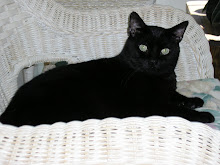The Other Half of Muhammed Ali
I’ve never
been a big boxing fan. I am also rather
ambivalent to poetry. Yes, I can
appreciate it, but the moment has to be right.
Otherwise I couldn’t be bothered.
That said I did not believe there was very much for me to have appreciated
Muhammed Ali’s accomplishments over the years.
My bad.
Now, with
his death last week, we can all take stock of his life and mourn his passing
for what I now know is truly a magnificent loss for humanity.
I’m not an
expert at the sport he rose to prominence.
I’ll let the sportscasters and columnists praise his technical skills in
the ring, while I can only nod in agreement.
I’ll take their word for it, whatever.
His use of
poetry may have come off as acts of arrogance, but it was a genius move. Ali used the rhyming couplets to boost his
stature, promote an event, and elevate the sport to the realm of entertainment
for the masses beyond its core audience of cigar chomping men in rolled up long
sleeves. Even if you weren’t a fan, you
could not miss his occasional performances in the spotlight in and outside of
the ring.
His years as
a boxer took up perhaps half his lifetime.
The other half outside the ring were spent quietly promoting civil
rights and justice for all.
At the
height of his boxing career, the then Cassius Clay came under the influence of
Malcolm X, and converted to Islam. He
joined the Nation of Islam and adopted its racist attitudes towards the white
society at large. Eventually he, like
Malcolm X, became disenchanted with the Nation (the Southern Poverty Law Center
still lists the NOI as a hate group) and distanced himself from his earlier
stance. He did not convert back from
Islam, instead embracing its principles to promote civil rights for all.
This is
important to note at a time when a man who has vowed to keep a group out of the
country because of their beliefs is poised to become leader of the free
world. Did anyone notice this idea: There
are no reports that Ali participated in any acts of violence outside the
ring. In this way he seemed to blend in
with the other Muslims in America; quietly going about their lives to prosper
for themselves and their children. He
did not seek to destroy the lives of others in the name of Islam. Take note fellow Americans; we should NOT allow
the actions of a comparatively small minority influence our actions to the 1.5
billion adherents of a major world religion.
Ali’s
passing at this point is therefore all the more tragic for humanity. We need his voice now more than ever. Yes, he could be cocky and arrogant, actions
which lead me to turn away, but I understand why he spoke the way he did. He spoke for a race that has long been abused
by the majority establishment.
His fists
would jab and punch with speed and fury,
but his voice would speak softly with eloquence. He could, as his most quoted couplet went,
“float like a butterfly and sting like a bee.”
He could rise above the ferocity of everyday conflict, yet make his mark
on humanity with a bite that was not rooted in hatred.
Eloquent
indeed!
(Thank you
for reading. Rest in Peace, Mr. Ali.)


2 Comments:
very eloquent, indeed.
Thank you, Spo. I've seen at least one other journalist state that he also had a dislike for the early Ali. Fortunately, Ali saw the error of his early days and behaved accordingly in his later years.
Post a Comment
<< Home